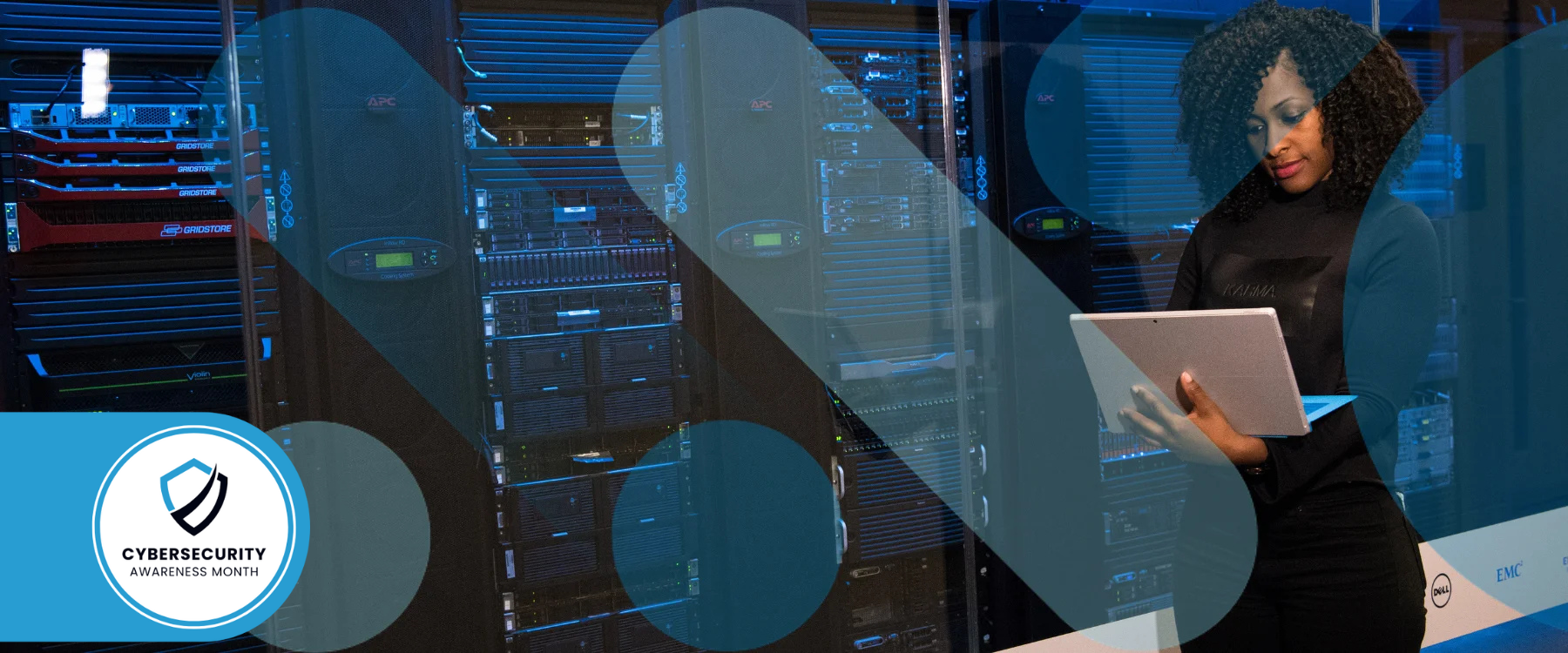DDoS attacks are among the most formidable challenges SMBs face.
In today’s interconnected digital ecosystem, businesses face an unprecedented level of cyber threats that can devastate operations within minutes. Distributed Denial of Service (DDoS) attacks are among the most significant security challenges organizations face. These attacks can bring down even the most robust IT infrastructures, resulting in catastrophic financial losses.
At CloudScale365, we understand that maintaining business continuity isn’t just about having backup systems; it’s about implementing proactive, intelligent defense mechanisms that combat these increasingly sophisticated attacks before they can impact your network.
Understanding the DDoS Threat Landscape
DDoS attacks are malicious attempts to disrupt the normal traffic flow of targeted servers, services, or networks by overwhelming them with a flood of internet traffic from multiple sources. These coordinated attacks exploit the capacity limits of network resources, rendering websites, applications, and entire digital infrastructures inaccessible to legitimate users.
What Constitutes a Comprehensive DDoS Protection Strategy?
CloudScale365’s enhanced DDoS protection solutions are engineered to address the full spectrum of attack vectors through a multi-layered, automated approach. Here are our recommendations for developing a strong DDoS protection strategy.
1. Advanced Threat Intelligence
Implement a versatile threat intelligence platform that continuously monitors global attack patterns, enabling cyber threat protection systems to identify and neutralize emerging threats before they can impact your infrastructure. This proactive stance ensures that your organization’s online presence maintains the highest levels of reliability and accessibility.
2. Global DDoS Protection Infrastructure
Utilize a carrier-agnostic, global DDoS protection solution that provides comprehensive coverage across multiple geographic regions, ensuring that attacks are mitigated at the point closest to their origin. This distributed approach minimizes latency while absorbing and filtering malicious traffic volumes that would overwhelm traditional security measures.
3. Layered DDoS Protection Architecture
CloudScale365 takes a layered approach to DDoS protection, providing in-cloud defense against advanced, high-volume attacks without interrupting access to your applications and services. Our solution employs both packet-based and virtual flow-based detection methodologies, creating multiple checkpoints that malicious traffic must navigate before reaching your infrastructure.
This multi-tier protection strategy includes:
- Network Layer Protection: Defending against volumetric attacks that attempt to consume bandwidth and network resources through UDP floods, ICMP floods, and other protocol-based attacks.
- Transport Layer Protection: Mitigating TCP-based attacks, including SYN floods, ACK floods, and connection exhaustion attacks that target server resources.
- Application Layer Protection: Protecting against sophisticated HTTP/HTTPS floods, slow-connection attacks, and application-specific vulnerabilities that traditional network defenses might miss.
4. Automated Detection and Response
Stateless packet-processing technology, combined with cloud-based IP flow analysis, automatically detects and mitigates DDoS attacks in real-time. This automated approach eliminates the delays associated with manual intervention, ensuring that attacks are neutralized within seconds of detection rather than minutes or hours.
Furthermore, the detection system utilizes machine learning algorithms that continuously adapt to new attack patterns, protecting against zero-day attack vectors that haven’t been previously cataloged. Behavioral analytics help distinguish between legitimate traffic spikes and malicious attack patterns. The result: a reduction in false positives, while maintaining comprehensive protection.
5. Hybrid Protection Deployment Options
CloudScale365 offers flexible deployment options for DDoS protection solutions. Our hybrid approach allows for deployment as cloud-only solutions for organizations seeking rapid implementation and scalability, or as intelligent combinations of in-cloud and on-premise protection for enterprises requiring granular control over their security posture.
The hybrid model provides several advantages:
- Reduced latency for time-sensitive applications
- Compliance with data sovereignty requirements
- Integration with existing security infrastructure
- Cost optimization through efficient resource utilization
Implementation Strategy and Best Practices
Successful DDoS protection implementation begins with a comprehensive risk assessment and infrastructure analysis. CloudScale365 security experts can work with you to:
- Identify Critical Assets: Catalog all internet-facing services, applications, and infrastructure components that DDoS attacks could target, including web servers, email systems, customer portals, API endpoints, and any other services that customers or partners depend upon.
- Analyze Traffic Patterns: Establish baseline traffic metrics and identify normal usage patterns to enable accurate detection of anomalous activity. Understanding typical traffic volumes, geographic distribution, and usage patterns helps fine-tune protection algorithms and reduce the frequency of false positive alerts.
- Define Protection Requirements: Determine specific protection needs based on business criticality, compliance requirements, and risk tolerance levels. Different applications may require varying levels of protection intensity and response speed.
- Consider Integration and Deployment: CloudScale365’s DDoS protection solutions are designed for seamless integration with existing infrastructure, regardless of whether organizations utilize on-premise systems, cloud platforms, or hybrid architectures.
- Confirm Cloud Platform Compatibility: Our solutions integrate natively with major cloud providers, including AWS, Azure, and Google Cloud Platform, ensuring that cloud-native applications receive the same level of protection as traditional infrastructure.
- Secure API and Automation Support: Comprehensive API support enables automated provisioning, monitoring, and reporting integration with existing IT management systems. This automation capability is essential for organizations managing large-scale or rapidly changing infrastructures.
- Ensure Minimal Latency Impact: Our global network architecture ensures that DDoS protection doesn’t compromise application performance, maintaining sub-millisecond latency additions for most use cases.
Advanced Features and Capabilities
An effective DDoS protection strategy requires continuous visibility, adaptive response mechanisms, and alignment with regulatory frameworks. CloudScale365 is here to help. We’ll detect anomalies, mitigate attacks with precision, and maintain operational integrity across complex environments.
Real-time Analytics and Threat Visualization
CloudScale365 offers comprehensive real-time analytics and threat visualization capabilities, providing security teams with unprecedented visibility into attack patterns and the effectiveness of their protection. The analytics platform offers:
Attack Pattern Analysis: Detailed breakdowns of attack types, source countries, target vectors, and mitigation effectiveness provide insights that help organizations understand their threat landscape.
Performance Impact Monitoring: Real-time monitoring of how DDoS protection measures affect application performance ensures that security doesn’t compromise user experience.
Predictive Threat Modeling: Machine learning algorithms analyze historical attack data to identify potential future threats, enabling proactive adjustments to security posture.
Compliance and Regulatory Considerations
Organizations in regulated industries must ensure that DDoS protection solutions support compliance with relevant standards and regulations. CloudScale365’s solutions are designed to meet requirements for:
- Industry Standards: Our protection infrastructure is built to meet SOC 2, ISO 27001, and other security framework compliance requirements.
- Data Sovereignty: Geographic data routing controls ensure that traffic inspection and filtering comply with data residency requirements in various jurisdictions.
- Audit and Reporting: Comprehensive logging and reporting capabilities support compliance auditing and regulatory reporting requirements.
Comprehensive Protection for Digital Business Continuity
In an era where digital infrastructure forms the backbone of modern business operations, DDoS protection isn’t optional; it’s essential for survival and growth. CloudScale365’s enhanced DDoS protection solutions provide the comprehensive, intelligent, and scalable protection that organizations need to maintain uptime, safeguard critical data, and block attacks before they can affect network operations.
Frequently Asked Questions (FAQ)
Q1: What is the difference between on-premises and cloud DDoS protection?
A: On-premises solutions protect your own network hardware, while cloud DDoS protection service leverages cloud infrastructure for scalable, global mitigation. Cloud solutions are generally more flexible and easier to deploy.
Q2: How do DDoS protection services detect attacks?
A: These services use traffic analytics, behavioral modeling, and threat intelligence to identify unusual traffic patterns and automatically filter malicious traffic without impacting legitimate users.
Q3: Can small businesses benefit from DDoS protection?
A: Absolutely. DDoS attacks can target any business, regardless of size. Affordable DDoS protection solutions are available for small businesses, providing peace of mind and ensuring uptime.
Q4: How much does DDoS protection cost?
A: Costs vary based on traffic volume, attack complexity, and provider. Cloud-based solutions often use subscription or pay-as-you-go models. Investing in protection can save much more by preventing downtime losses.
Q5: Are there any limitations to DDoS protection services?
A: While DDoS protection service providers can significantly reduce risks, no solution is 100% foolproof. Combining DDoS protection with firewalls, security monitoring, and incident response plans is recommended.
 Broadwing Capital Acquires CloudScale365...
Broadwing Capital Acquires CloudScale365... 


